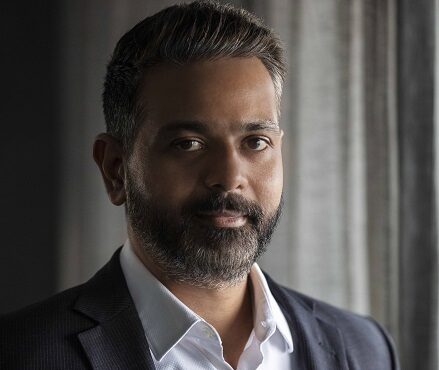
CXOToday has engaged in an exclusive interview with Rajendra Chitale, Chief Finance Officer, Crayon Software Experts India
- How has a CFO’s role changed in the digital transformation age?
The CFO’s role has evolved from initially being a bookkeeper/ accountant – to being focused on financial reporting and control – to becoming a strategic partner in leveraging technology, data, and innovation to drive business growth and mitigate risks in the digital transformation age. This transformation is essential for organizations to thrive in the fast-paced, technology-driven business landscape of today.
Here are some key takeaways in which the responsibilities and functions have evolved from tradition to the digital transformation era:
- Technology Integration:
- Traditional CFO Role: CFOs managed financial systems, but technology was not a central aspect of their role.
- Digital Transformation Era: CFOs are responsible for overseeing the integration of financial technology (FinTech) tools and systems, such as cloud-based accounting software or AI-powered forecasting tools. Automation tools and technologies have allowed CFOs to streamline financial processes, reducing errors and saving time.
- Example: Implementing an Enterprise Resource Planning (ERP) system to streamline financial processes and improve real-time reporting accuracy. CFOs can implement robotic process automation (RPA) to automate routine tasks such as invoice processing or payroll, leading to cost savings and improved accuracy.
- Data-Driven Decision Making:
- Traditional CFO Role: Historically, CFOs primarily focused on financial reporting and compliance.
- Digital Transformation Era: Today’s CFOs are increasingly involved in data-driven decision-making processes. They use advanced analytics and data to provide insights into the company’s financial health and performance.
- Example: A CFO may use data analytics to identify trends in customer behavior, helping the company tailor its marketing strategies (and also its working capital requirements) for better ROI.
- Strategic Planning and Innovation:
- Traditional CFO Role: CFOs were often seen as number-crunchers, focused on cost control.
- Digital Transformation Era: CFOs now play a crucial role in strategic planning and innovation. They help identify investment opportunities in emerging technologies and ensure financial resources are allocated effectively.
- Example: A CFO may analyze the potential cost savings and revenue growth associated with transitioning from on-premises servers to cloud-based infrastructure.
- Risk Management:
- Traditional CFO Role: CFOs have always had a role in managing financial risks.
- Digital Transformation Era: In the age of digital transformation, CFOs must also manage cybersecurity risks and data privacy concerns that come with increased reliance on technology.
- Example: Developing a robust cybersecurity strategy to protect sensitive financial data and customer information.
- Stakeholder Communication, Collaboration and Transparency:
- Traditional CFO Role: CFOs primarily communicated financial results to internal stakeholders.
- Digital Transformation Era: CFOs now collaborate more closely with other departments, such as IT and marketing, to align financial goals with broader business objectives. They now need to communicate with a broader range of stakeholders, including customers, employees and partners, about the financial implications of digital initiatives. They ensure transparency regarding financial performance and the impact of digital strategies on the company’s bottom line.
- Example: Working with the Chief Information Officer (CIO) to allocate funds for IT projects that enhance operational efficiency.
- Regulatory Compliance:
- Traditional CFO Role: CFOs always had a role in ensuring compliance with financial regulations.
- Digital Transformation Era: With the rise of digital transactions and cross-border operations, CFOs must navigate complex international regulations, tax codes, and data privacy laws.
- Example: Ensuring compliance with the DPDP 2023 and currently relevant cyber regulations when handling customer data for financial transactions across borders.
- Talent and Skillset Development:
- Traditional CFO Role: CFOs focused on managing the finance team.
- Digital Transformation Era: CFOs play a role in developing a digitally skilled finance team. They encourage continuous learning and may hire data analysts and data scientists to support data-driven decision-making.
- Example: Providing training programs for finance staff to enhance their data analysis capabilities.
- How has the role of a finance head and the team changed with technological advancements?
The role of CFOs and their team has undergone significant transformation in response to rapid technological advancements in recent years. Traditionally, finance departments were primarily responsible for managing financial transactions, budgeting, and reporting. However, with the advent of advanced financial technologies, such as artificial intelligence, machine learning, and blockchain, finance heads now play a pivotal role in harnessing these tools to drive more efficiency as well as strategic decision-making. They have become data stewards, using analytics to provide deeper insights into financial performance, risk assessment, and forecasting. Additionally, the finance team has evolved to include data scientists, IT specialists, and cybersecurity experts to effectively leverage and protect sensitive financial data. Automation and digitalization have streamlined routine tasks, allowing finance professionals to focus more on analysis and strategic planning. In this digital era, finance leaders must be agile, adaptive, and possess a strong understanding of technology to stay competitive and ensure their organizations remain financially resilient in a rapidly changing landscape.
- Why is the presence of a CFO crucial for any organization?
Many organizations avoid creating a separate position for a CFO as they consider it to be an extravaganza that can be done away with. This negatively impacts the organization as a separate CFO position is essential because it brings specialized financial expertise and strategic financial leadership to the executive team. The CFO holds a pivotal role within any organization, serving as the financial steward and strategist who plays a critical role in its success. The importance of a CFO cannot be overstated, as they are responsible for overseeing all financial aspects, ensuring the company’s fiscal health, and driving strategic decisions.
CFOs are instrumental in financial planning, budgeting, and forecasting, which are crucial for sustainable growth. They provide valuable insights through financial analysis, risk assessment, and performance metrics, enabling informed decision-making by the executive team and stakeholders. Furthermore, a CFO is essential for structuring business transactions to be tax efficient and compliant as well as for capital allocation, managing cash flow, and optimizing the capital structure, ensuring the efficient use of resources. In addition, they play a pivotal role in compliance, maintaining transparency and adhering to regulatory requirements. The CFO’s multifaceted role extends beyond finance, making them an indispensable asset in shaping the long-term success and sustainability of any organization. Separating this role from other executive positions ensures a clear focus on financial matters, fostering accountability and a robust financial strategy.
- Tell us more about your role as a CFO and the transformations you have brought to Crayon.
I joined the industry as CFO of Crayon Software Experts India in 2014 and am handling the overall finance function for India. I built and led the department from its foundation establishing policies, procedures, budgeting, sales support on commercial matters, and overall strategy. This also includes registrations, office leases, strategies, business intelligence, alliances, and supporting sales teams in transaction structuring to ensure compliance and efficiency in business, funding, etc. I was also looking at the finance function for the South-East Asia region of Crayon for some time and now am in charge of the MEA region along with India.
I am also currently engaged in M&A activities for the global organization and involved in post-merger integration activities.








